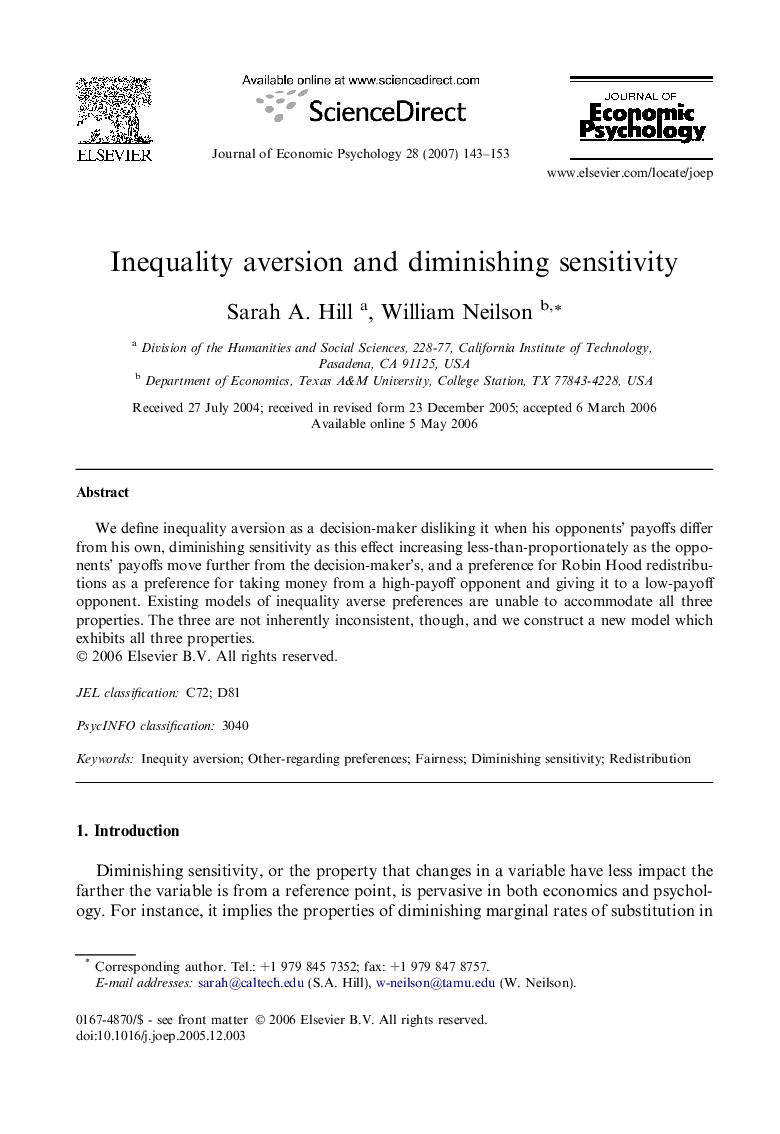| Article ID | Journal | Published Year | Pages | File Type |
|---|---|---|---|---|
| 885367 | Journal of Economic Psychology | 2007 | 11 Pages |
Abstract
We define inequality aversion as a decision-maker disliking it when his opponents’ payoffs differ from his own, diminishing sensitivity as this effect increasing less-than-proportionately as the opponents’ payoffs move further from the decision-maker’s, and a preference for Robin Hood redistributions as a preference for taking money from a high-payoff opponent and giving it to a low-payoff opponent. Existing models of inequality averse preferences are unable to accommodate all three properties. The three are not inherently inconsistent, though, and we construct a new model which exhibits all three properties.
Related Topics
Social Sciences and Humanities
Business, Management and Accounting
Marketing
Authors
Sarah A. Hill, William Neilson,
